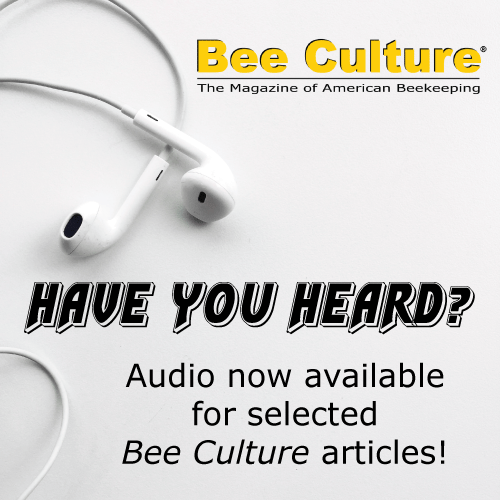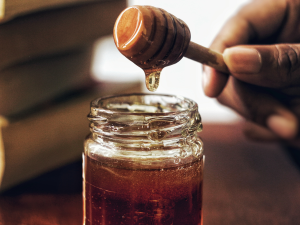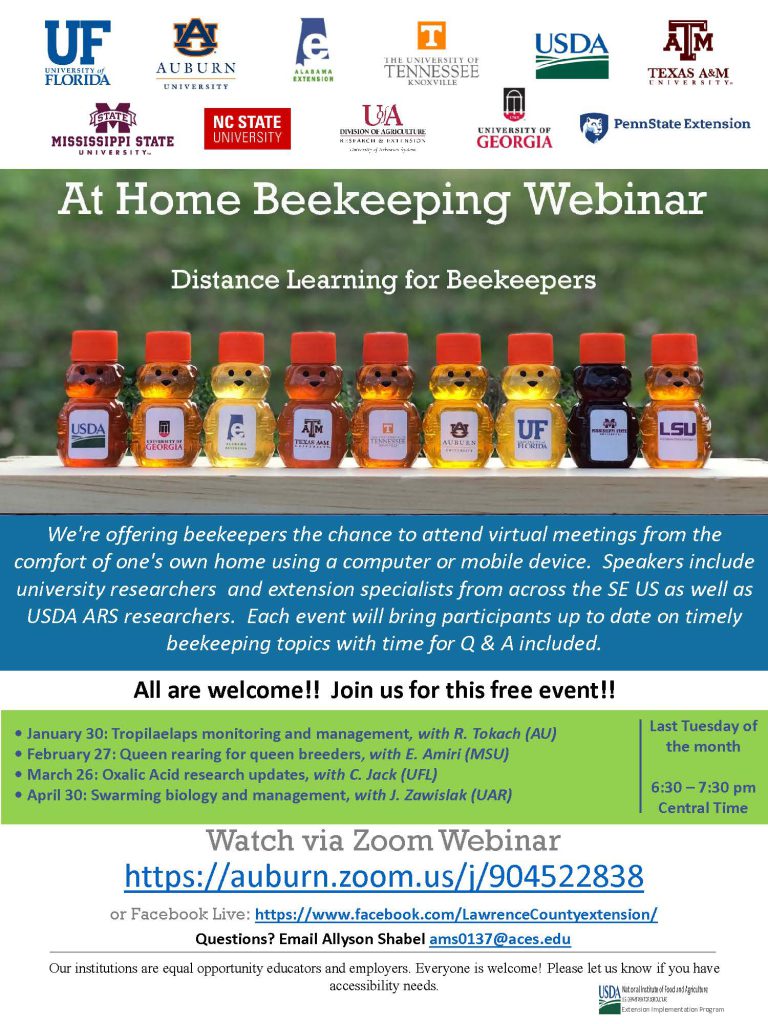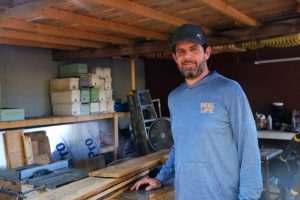Healthy honey bees a priority for Sarah Wood at Sask. vet college
Wood says preventing and treating disease in Prairie honey bee colonies is vital to ensure pollination of crops like canola and blueberries.
Angela Hill • The Star Phoenix
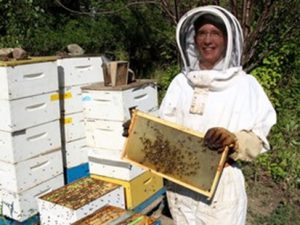
Sarah Wood was named Chair in Pollinator Health at the U of S Western College of Veterinary Medicine in June. PHOTO BY ANGELA HILL /Saskatoon StarPhoenix
A typical summer day has Sarah Wood outside with bees and probably getting stung.
“It’s just a continuous thing. I don’t really swell up or react to it anymore,” said the recently named chair in pollinator health at the University of Saskatchewan’s Western College of Veterinary Medicine.
The stings don’t slow her down. Wood has been interested in working with and studying bees as a veterinarian since 2014, when she left her veterinary practice in Alberta to return to her home province, Saskatchewan.
“I was a small animal vet, dealing with dogs and cats and snakes, and I decided to return to Saskatoon to specialize and study pathology or diseases of animals,” she said.
“I am interested in the health of many species, but in particular, I’m interested in the health of honey bees and wild bee species in the Prairies.”
Not only do 70 per cent of Canada’s honey bee colonies live on the Prairies, according to a 2020 report by Agriculture and Agri-Food Canada, but about 80 per cent of Canada’s honey comes from here. These bees are also responsible for billions of dollars in agriculture by pollinating crops like blueberries and canola.
This is why funding for Wood’s work comes from Saskatchewan Beekeepers Development Commission; BASF, a chemical company; SaskCanola; British Columbia Blueberry Council; and Manitoba Canola Growers.
“We work closely with the Manitoba Beekeepers Association, and this investment expands our commitment to a healthy bee population,” Delaney Ross Burtnack, executive director of Manitoba Canola Growers, said in a release about Wood’s new research position announced in June.
“Bees love canola, and canola loves bees. Both our industries grow when we work together.”
It’s a natural fit for Wood, who has a veterinary degree from U of S, a Bachelor of Science in Biology from Acadia University and a Masters in Environmental Biology from Guelph.
Like pets, honey bee colonies need care and management.
“In order to keep them healthy, it’s just like any other animal, they need to treat them with medications, and they have a variety of diseases,” Wood said.
“People really love their pets, but beekeepers also really love their bees and take this same level of care towards their animals like a pet owner would. It’s rewarding to work with people who care so much about the animals they work with.”
Wood started her research with a PhD project looking at how a specific pesticide treatment on canola seeds impacted honey bees. She learned that there are safe thresholds that won’t affect the bee colony’s ability to make honey or survive winter. During the research in 2015, Wood, her supervisor Elemir Simko, and another student started what has become the honey bee lab today.
“We were really the first veterinary school to have a honey bee research program in North America,” she said.
In 2018, regulations changed, and beekeepers could no longer access antibiotics without a prescription, so there was an increased need for a relationship with a vet.
“It was just sort of fortuitous that we had this lab up and running when that change occurred and it just kind of grew from there.”
Now Wood runs the lab with 15 members during the summer, as postgraduate, graduate and undergraduate students come together to research and care for their bees.
‘Finding balance’
On a typical summer morning, Wood starts in the lab, first meeting with her students and checking in on their projects. One August day, she found Marina Becerra da Silva, a Brazilian master’s student peering through a microscope at a slide. The setup allows more than one person to look at the same time. Wood sat down and listened as Becerra da Silva updated her on the research.
Becerra da Silva was first an intern in 2019 in the lab. She chose to come back to the U of S for her graduate work because of Wood.
“It’s amazing working with (Wood) because she is so patient and every day she is happy and gives advice … it’s good vibes, so it’s amazing. She is so smart.”
The bee lab has also attracted researchers from Germany, India, Ukraine, and Canada. The international lab team works on many different projects, including looking at types of bacterial infections in bees, their impacts and if bees can survive them; antibiotic resistance of these bacteria; how to reduce antibiotic usage; and more.
All the students work together to maintain the health of their bee colonies, which are in four locations around Saskatoon. One of these is at the university’s horticulture site. In the afternoon, after she checks in with the students, Wood heads out to the field.
“One of the huge advantages to our research is we get to be outside quite a bit during the summer, so there is a lot of outdoor activity in addition to lab work,” she said.
Some of the honey produced by the Lab’s hives goes to the people in the lab, which they are all excited to receive. They also sell honey at the vet school to raise funds and awareness of their work. A majority of the honey is sold on the bulk honey market through a commercial bee-keeper, and the money goes to funding students to attend conferences or buy lab equipment.
For the past several years Wood managed her own bee colony in the backyard of her Saskatoon home, but she lost them last winter.
“I can tell you firsthand that it really hurts to lose your colonies,” she said.
Bee health is measured by the ability to survive the winter. Last winter Canadian beekeepers lost 45.5 per cent of their colonies, with beekeepers in Saskatchewan losing 35 per cent, Wood said. The leading cause was the varroa destructor mite, but access to diverse nutrition and pesticides can all impact a colony’s ability to survive.
With her new research role, Wood said she hopes that by the end of the five-year term there will be a better understanding of how to manage honey bee health while dealing with “climate change and economic uncertainty.”
She wants to pull expertise from veterinary medicine, entomology and agriculture to learn how to better manage stressors on honey bee populations.
“It’s about finding a balance and allowing nature and agriculture to co-exist and be mutually beneficial.”
We are here to share current happenings in the bee industry. Bee Culture gathers and shares articles published by outside sources. For more information about this specific article, please visit the original publish source: https://thestarphoenix.com/life/bridges/healthy-honey-bees-a-priority-for-sarah-wood-at-sask-vet-college




